Baby Formula Protein Source
55 hours of research 4 minute read

Whether you have a baby or a toddler, protein is an essential nutrient. Protein is essential for human growth, especially during periods of rapid growth, such as infancy and puberty.
The foundation of great toddler nutrition is a healthy infant. All parents want to feed their children healthily, so learning the fundamentals of important nutrients like protein is necessary.
Parents are concerned that their baby isn't getting enough protein. If you intend to feed your baby infant formula, one of the most important first decisions you will make is PROTEIN SOURCE! Certain proteins may be more difficult to digest than others, some may even cause allergic reactions in some children.
What Is Protein?
In addition to fat and carbohydrates, protein is a necessary macronutrient. It is necessary for growth and development, is utilized to restore tissue, and aids in keeping the pH and balance of bodily fluids. The body needs certain proteins, called enzymes, to carry out important metabolic processes like blood coagulation, digestion, muscular contraction, and energy production.
Protein In Formula: Why Does It Matter?
Amino acids make up proteins. For the maintenance and development of the hair, skin, bones, and so much more in our bodies, 22 amino acids are required. Only 13 of these acids can be produced by our bodies naturally, thus we must consume food to obtain the other 9. Hemoglobin, which is important for transporting oxygen in the blood, is likewise made using protein.
Protein Requirements For Infants And Toddlers

A diet full of nutrients is crucial for growing and developing youngsters. Protein is one crucial ingredient that must be included in your child's diet. Protein is crucial for the body's maintenance and repair. Compared to older kids and adults, babies and toddlers require more protein in their diets.
Let's look at how much proteins that newborns and toddlers need:
- 0-6 months - At this stage, all the protein is provided by breast milk/formula. Since the baby is still developing, only liquids should be given to him or her.
- 6 months old - You should start weaning your infant at this age; in addition to breast milk or formula, protein-rich solid foods can be offered at this time.
- 8 Months - Giving chopped meats and vegetables to infants at this age is acceptable and recommended. Your eight-month-old should also have mashed beans, egg yolks, paneer, and curd.
- 10 Months - Now your infant will be able to consume the same foods as the rest of the family. Make sure the meal is soft and sliced into manageable portions, and take care.
- 1-3 Years of Age (Toddlers) - For a toddler to develop healthily and strongly, they should consume 0.55 grams of protein per pound of body weight each day.
Infants And Their Protein Needs
Infants should receive their protein requirements from breast milk or baby formula for at least the first six months of life. Infants can begin introducing age-appropriate solid (pureed) foods between 4-6 months of age. These foods are initially largely for pleasure but can also be a healthy source of protein.
The average recommended protein intake for infants is between 1.1 and 1.5 grams per kilogram of body weight, or 11 grams per day for children aged 7 to 12 months. For instance, a youngster weighing 20 pounds, or 9.1 kg, would require about 9 to 14 grams of protein daily. Your youngster will need slightly more protein as they grow and develop bigger.
Toddler Protein Needs
Most kids can get all the protein they need from solid foods by the time they are toddlers, instead of relying on formula or breast milk. Beans, lentils, whole cow's milk, various nut and seed butters, organic soy milk or products, and other legumes are excellent sources of protein for young children.
A recommended dietary allowance (RDA) of 13 grams of protein per day is advised for children ages 1-3.
Symptoms of Infant Protein Deficiency
When your protein consumption falls short of what your body needs, you have a protein deficiency. Your body may display signs and symptoms of deficiency that shouldn't be disregarded because they could lead to a number of health issues or make them worse. Here's the list of signs and symptoms that your body may be suffering from a protein deficiency.
- Skin, hair and nail problems
- Loss of muscle mass
- Increased risk of bone fractures
- Bigger appetite and increased calorie intake
- Risk of infections
- Fatty liver
- May inhibit proper body growth in children
To prevent any protein deficiency that could result in health issues, consume plenty of protein throughout the day. In order to prevent issues down the road, you should also see a doctor if you have these symptoms.
Symptoms Of Too Much Protein Intake For Children
- Weight Gain
- Organ Problems
- Weakened Immune System
When Is Extra Protein Needed For Infants?
In very rare circumstances, a youngster may require more protein in their diet.
- Baby is underweight
- Exceptionally picky eater
- Vegan/vegetarian baby diet
- Certain metabolic conditions
Overall, kids should consume enough protein daily to meet their needs. They probably don't need any more protein supplements than what they get daily.
Protein Source For Infants
Most commonly used infant formula contain casein and whey as their protein sources. A standard infant formula that contains whey and casein is likely to be well tolerated by your child, unless your baby's doctor has prescribed a specialized infant formula. With that said, there Many different formulas offer a variety of protein options, including those based on soy, hydrolyzed sources of protein, and cow's milk.
2 Major Types of Cow’s Milk Protein
Cow's milk is the typical (and default) source of protein in infant formula. Let's look over the many forms of cow's milk protein that are offered.
A cow's milk-based formula will contain one of two primary forms of cow's milk protein. These are casein and whey proteins. In reality, whey and casein are not two separate proteins. Each one of them represents a group of several proteins (or chains of amino acids linked together). The behavior of the two kinds of proteins in the presence of acid is what sets them apart (like stomach acid).
- Whey proteins are the ones that stay liquid after milk coagulates (curdles). Whey proteins stay "liquid" in the stomach longer than casein proteins, which causes the stomach to empty more swiftly into the intestines. Furthermore, there is less chance that whey proteins will cause allergies to flare up.
- Casein proteins take longer to digest because they curdle. Casein proteins are the key factors behind the majority of milk allergies. Casein proteins are regarded to be more "reactive" than whey proteins, making them more likely to trigger allergies or general dyspepsia.
4 Points To Remember About Whey And Casein
- Casein and Whey are the two types of protein that make up milk protein. Casein is more "reactive" than whey and empties the stomach more quickly.
- The protein in cow's milk is about 20% whey and 80% casein, whereas the protein in human breast milk varies but is about 60% whey and 40% casein.
- The specific proteins that make up casein and whey in human breast milk are different from those that make up casein and whey in cow's milk.
- Human milk has 60% whey and 40% casein, compared to 20% whey and 80% casein in cow's milk protein.
3 Major Types of Protein Sources in Formula
Cow milk protein-based formulas: cow milk protein-based formulas: the majority of baby formula is created using cow's milk that has been modified to resemble breast milk. This ensures the proper nutritional balance in the formula and makes it simpler to digest. Most infants thrive on formula made from cow's milk. Other kinds of infant formula are required by some babies, such as those who are allergic to the proteins in cow's milk.
Soy-based formulas: if you want your child's diet to be free of animal proteins, soy-based formulas may be helpful. For infants who are intolerant to or allergic to cow's milk formula or to lactose, a carbohydrate naturally present in cow's milk, soy-based infant formulas may also be an alternative. Babies with cow's milk allergies, however, may also have a soy milk allergy.
Protein hydrolysate formulations: these formulas contain smaller-sized protein molecules (hydrolyzed) than those found in formulas made with cow's milk and soy. The hydrolysis can be partial or extensive. Baby formula made with protein hydrolysate are designed for infants who cannot accept formulas made with cow's milk or soy. For infants with a protein allergy, extensively hydrolyzed formulas are an alternative.
Protein-Rich Formulas
To more closely imitate breast milk, it is recommended choosing a baby formula that either contains extra whey or is entirely made of whey. Organic Life Start carries organic formulas that are rich in proteins.
Protein By Formula Brand
| HiPP | Holle | Lebenswert | Kendamil |
|---|---|---|---|
|
Most HiPP formulas: Protein ratios regulated to conform with the structure of breastmilk. HiPP AR: 100% whey HiPP HA: Protein hydrolysates suited for babies with sensitive tummies. |
All Holle formulas: Protein ratios regulated to conform with the structure of breastmilk. Goat: Balanced whey casein protein ratio for babies who suffer from cow's milk protein intolerance. |
All Lebenswert formulas: Protein ratios regulated to conform with the structure of breastmilk. |
All Kendamil formulas: Protein ratios regulated to conform with the structure of breastmilk. |
Holle Cow Milk Formula Protein
Most newborn milk and feeds are made with cow milk formula. Compared to breast milk, this formula milk has a higher concentration of minerals, proteins, and lipids. However, in order to closely imitate breast milk, cow milk is typically skimmed and diluted. While cow milk formula is advised for infants under the age of one, cow milk on its own provides a significant composition of nutritional value for babies. Here are the most popular cow's milk formulas:
✓Clean formula ingredients
✓Demeter biodynamic certified
✓Contains natural whey, DHA, & ALA
✓ Holle's most popular cow formula
Check Price✓ Clean formula ingredients
✓ Demeter biodynamic certified
✓ Contains natural whey, DHA, & ALA
✓ Holle's most popular cow formula
Check Price✓ Clean formula ingredients
✓ Demeter biodynamic certified
✓ Contains natural whey, DHA, & ALA
✓ Holle's most popular cow formula
Check Price✓ Clean formula ingredients
✓ Demeter biodynamic certified
✓ Contains natural whey, DHA, & ALA
✓ Holle's most popular cow formula
Check Price✓ Clean formula ingredients
✓ Demeter biodynamic certified
✓ Contains natural whey, DHA, & ALA
✓ Holle's most popular cow formula
Check PriceHolle Goat Milk Formula Protein
Goat milk tends to contain lower protein concentrations than cow's milk. Below are the most popular goat milk formulas, in order of ascending age:
✓ Age: Birth-6 months (including premature babies)
✓ No palm oil
✓ Contains natural whey, DHA, & ALA
Check PriceWhat Is Excluded From Holle Organic Formula?
Let's look at what Holle organic formula DOESN'T contain as it employs the healthiest nutrients for your child's nutritional requirements:
- No Added Sugars: Holle never adds sugar to their formulae, in contrast to budget brands that frequently do so.
- No GMOs: GMOs contain artificial substances that might cause a variety of health issues for your infant. Since Holle cares about your baby's health, its formulas never include GMOs.
- No Soy: It has been suggested that soy interferes with a baby's ability to develop their brain and their nerves.
- Gluten: Holle formulas are allergy-friendly since they don't include wheat or gluten, allowing your baby to comfortably digest the formula.
Protein In HiPP Formulas
To provide your baby with the finest nutrition possible, HiPP uses a protein source that closely resembles breast milk. Protein aids in the growth of the brain, muscles, and other tissues; this macronutrient is necessary for all infants. The protein ratio in HiPP's protein source is the same as that in breast milk. Baby formula made with 100% Whey and designed to help people with sensitive stomachs is called HiPP.
✓Contains Probiotics & Prebiotics
✓ No sugar, no corn syrup, no soy
✓ No starch
✓ Organic Whey
✓ HiPP's most popular formula
Check Price✓Contains Probiotics & Prebiotics
✓ No sugar or corn syrup
✓ No soy
✓ Organic Whey
✓ HiPP's original formula
Check PriceHiPP Formulas With Hydrolyzed Protein
✓Contains Probiotics & Prebiotics
✓ No sugar, no corn syrup, no soy
✓ Reduced lactose with hydrolyzed milk protein
✓ Easy to digest formula for sensitive babies
Check Price✓Contains Probiotics & Prebiotics
✓ No sugar, no corn syrup, no soy
✓ Organic locust bean gum makes formula creamier
✓ Organic Whey
✓ Popular for babies that spit-up
Check Price✓Contains Probiotics & Prebiotics
✓ No sugar, no corn syrup, no soy
✓ Hydrolyzed milk proteins reduce allergic reactions
✓ Popular for constipated babies
Check Price✓ Contains Prebiotics, DHA, and ARA
✓ No sugar, no corn syrup, no soy
✓ Reduced lactose with hydrolyzed milk protein
✓ Popular for the dietary management of colic and constipation
Check Price✓ Contain Probiotics and Prebiotics
✓ No sugar, no corn syrup, no soy
✓ Hydrolyzed milk proteins reduce allergic reactions
✓ Easy to digest formula for sensitive babies
Check PriceWhat Does HiPP Organic Baby Formula Not Include?
Let's look at the chemicals HiPP organic baby formula don't have now that we are aware of what they do:
- GMOs are genetically modified products that contain artificial ingredients.
- No Soy: It has been suggested that soy, a processed food, can harm an infant's health. Lactose, the sole carbohydrate in HiPP's formula that mimics the flavor of mother's milk, is present.
- Sugars added on top can ruin a baby's digestive system.
- Gluten: HiPP baby formula is an allergy-friendly, gluten-free infant milk formula that you should use if your baby is gluten intolerant or has trouble digesting gluten.
- Maltodextrin is lacking from the majority of HiPP formulae. It is an artificial sweetener. Most versions of HiPP don’t have maltodextrin.
Lebenswert Formulas Protein
The renowned, organic, and largest infant formula manufacturer in Europe, Holle, developed Lebenswert Baby formulae in 2009. High-quality, organic components that were certified by Bioland, the largest organic food association in Germany, were used in the formula, which was largely introduced in Austria.
Because of the premium-grade organic formulation used by the business, Lebenswert enjoys high customer satisfaction. With Bioland certification, the product must be entirely organic.
✓Bioland certified (Organic++)
✓ Organic Whey
✓ No sugar, no corn syrup, no soy
✓ DHA & ALA for brain development
✓ Lebenswert's most popular formula
Check Price✓Bioland certified (Organic++)
✓ Organic Whey
✓ No sugar, no corn syrup, no soy
✓ DHA & ALA for brain development
✓ Appropriate from 6 months up
Check Price✓Bioland certified (Organic++)
✓ Organic Whey
✓ No sugar, no corn syrup, no soy
✓ DHA & ALA for brain development
✓ Appropriate from 10 months up
Check PriceKendamil Formulas Protein
Kendami formulas include a balanced blend of proteins, with an emphasis on the use of premium ingredients like organic whole milk. These proteins are carefully selected to support healthy growth and development in infants, ensuring they receive the essential nutrients they need for optimal health.
✓ Whole Milk as a Natural Mammal Fat Source
✓ Contains Plant-Based DHA and ARA
✓ No sugar, no corn syrup, no soy, no palm oil
✓ EU and British Soil Association Certified Organic
Check Price✓ 100% Vegetarian Formula
✓ Contains Plant-Based DHA and ARA
✓ No sugar, no corn syrup, no soy, no palm oil
✓ Kendamil's most popular go-to infant cow's milk formula
Check Price✓ No sugar, no corn syrup, no soy, no palm oil
✓ Contains Lactose with a Low Glycemic Index
✓ Contains natural whey, DHA, and ALA
✓ Popular for digestive issues or allergy to cow’s milk
Check PriceKabrita Formulas Protein
Kabrita’s protein source is derived from high-quality non-GMO goat's milk. Goat's milk protein is naturally easy to digest and less allergenic compared to cow's milk protein, making Kabrita formulas a suitable option for infants with sensitive stomachs or cow's milk allergies. Kabrita's commitment to providing essential nutrients through goat's milk protein ensures that babies receive the nourishment they need for healthy growth and development. Parents seeking a gentle and nutritious formula for their infants often turn to Kabrita for its goat's milk-based protein and trusted quality.
1. Kabrita
✓ Age: (Stage 1: 0-6 months), (Stage 2: 6-12 months), (Stage 3: 12+ months)
✓ Contains natural whey, DHA, and ALA
✓ No soy, corn syrup, maltodextrin, or starch
✓ 100% Non-GMO formula
✓ Easy to digest goat milk formula for sensitive babies
Check PriceNannycare Formulas Protein
Nannycare Formulas are known for their innovative approach to infant nutrition. These formulas incorporate high-quality protein sources derived from goat's milk, which is easier to digest for some infants compared to cow's milk. Goat's milk proteins in Nannycare formulas provide essential amino acids and nutrients to support healthy growth and development, making them a suitable choice for babies with dietary sensitivities or those looking for an alternative to traditional cow's milk-based formulas.
1. Nannycare
✓ Age: (Stage 1: 0+ months), (Stage 2: 6+ months), (Stage 3: 12-36 months)
✓ No soy, palm oil, corn syrup, maltodextrin, or starch
✓ Contains DHA and ALA
✓ 100% Non-GMO formula
✓ Premium goat milk formula ideal for gentle stomachs
Check PriceAptamil Formulas Protein
Aptamil Baby Formulas are crafted to provide optimal nutrition for infants, and their protein sources play a crucial role in this. Aptamil formulas primarily use high-quality cow's milk proteins, which are carefully processed to be gentle on an infant's delicate digestive system. These proteins contain essential amino acids necessary for healthy growth and development, making Aptamil a trusted choice for parents seeking reliable and nourishing infant formulas.
✓ Allergy-Friendly (No Gluten, Wheat, or Nuts)
✓ Omega 3 & 6 LCPs (DHA and ALA)
✓ Contains DHA and ALA
✓ Ethically sourced ingredients
✓ Patented prebiotics for healthy gut and immune system development
Check Price✓ Allergy-Friendly (No Gluten, Wheat, or Nuts)
✓ Omega 3 & 6 LCPs (DHA and ALA)
✓ Contains DHA and ALA
✓ Ethically sourced ingredients
✓ Patented prebiotics for healthy gut and immune system development
Check Price✓ Contains a patented blend of prebiotics GOS/FOS
✓ Has no added lactose
✓ Hydrolyzed milk proteins reduce allergic reactions
✓ Ethically sourced ingredients
✓ Popular for the dietary management of cow’s milk protein allergy (CMPA)
Check Price✓ No sugar, no corn syrup, no soy
✓ Reduced lactose
✓ Hydrolyzed milk proteins reduce allergic reactions
✓ Designed to help with colic and constipation
Check Price✓ Age: 0-12 months
✓ Formula for reflux
✓ No sugar, no corn syrup, no soy
✓ Thickened consistency to reduce spit up
✓ Popular baby formula for acid reflux
Check PriceWhat Is Not Included in the Lebenswert Baby Formula?
- No Additional Steroids or Antibiotics: Because they can harm a baby if they enter the bloodstream, steroids and antibiotics are not allowed in Lebenswert infant formula.
- No Added Sugars: Because a baby's digestive system is still developing, it is best not to offer them too much sugar. Sugar consumption in excess can cause obesity, brain damage, and other problems.
- No Soy: The inclusion of soy in infant formulae can be a major warning sign. Baby's brain health can be negatively impacted by soy.
- Zero Chemical or GMO Use: Genetically Modified Ingredients (GMOs) have a harmful nature and may retard growth. With Lebenswert, you can relax knowing that all of our ingredients have undergone thorough inspection and have been chosen in compliance with the rules.
- No Gluten or Wheat: Many newborns have trouble digesting wheat or gluten, however Lebenswert takes this issue seriously and produces formulas that are completely free of these ingredients. Furthermore, no corn syrup.
Formula Protein Sources - In Summary
You may feel overwhelmed by the sheer number of formulations due to the range of protein alternatives that are layered. However, you are now aware of how to choose your formula based on the protein components.
Put protein first because it is most likely to have an impact on digestion and comfort. Choose the formula with the carbohydrate blend that comes closest to what you desire from possibilities with the protein source you're looking for.
You relied on science to inform your choice. It is usually advisable to ask an expert for advice if you need to change formulas in the future. For variety of protein-rich organic formulas - Organic Life Start is happy to serve!
Most Popular Protein-Rich Formula
Organic Life Start is committed to providing accurate, reliable, and trustworthy information to parents and caregivers. We carefully choose credible sources and follow a meticulous fact-checking process to uphold the highest standards in infant nutrition and parenting advice. To learn more about our dedication to accuracy, please explore our editorial guidelines.
Link To Sources
- https://babyformulaexpert.com/baby-formula-protein-source/
- https://milk-drunk.com/whey-and-casein-ratio-in-formula-why-is-it-important/
- https://www.eufic.org/en/whats-in-food/article/what-are-proteins-and-what-is-their-function-in-the-body
- https://babyformulaexpert.com/baby-formula-protein-source/
- https://www.mayoclinic.org/healthy-lifestyle/infant-and-toddler-health/in-depth/infant-formula/art-20045782
- https://www.healthline.com/health/parenting/baby-formula-guide-how-to-choose-the-right-kind-for-your-kid#What-about-extra-ingredients?
- https://www.medicalnewstoday.com/articles/322825
- https://health.clevelandclinic.org/why-extra-protein-for-your-child-is-unnecessary-and-possibly-dangerous/




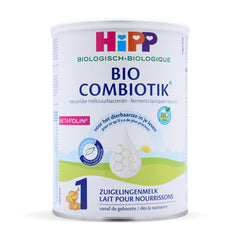

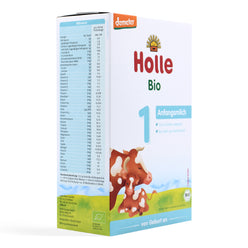




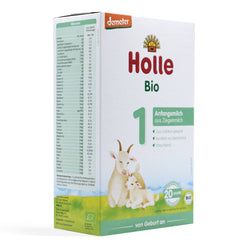


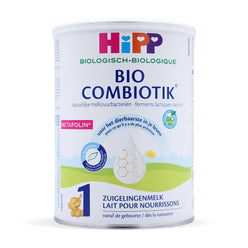




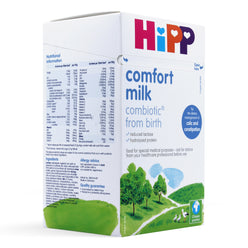


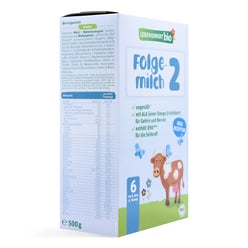
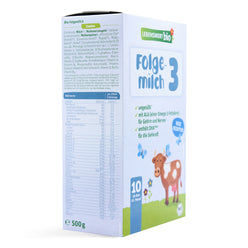
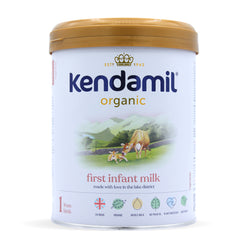
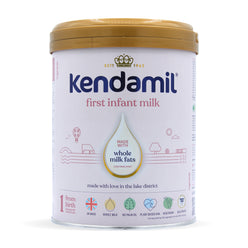
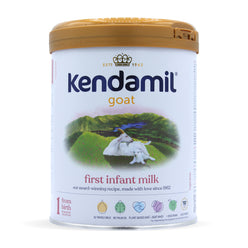
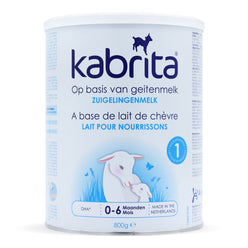
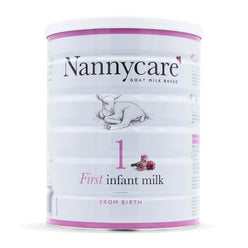
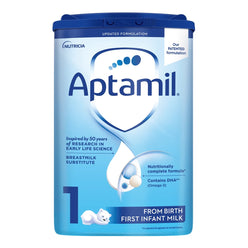
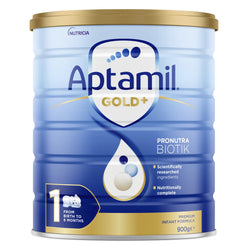
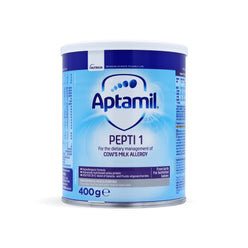
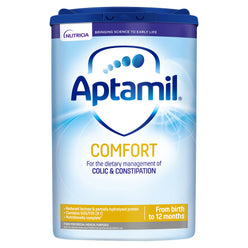
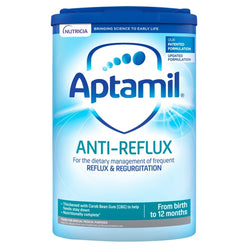






Robin Mooney -
I’d love to hear more about the specific differences between A1 and A2 beta-casein proteins and how they impact infant digestion!
Aileen Landry -
February 19, 2026
I didn’t realize how much the protein source mattered until our baby had trouble with one formula and did better on another. Reading about whey vs casein ratios and goat milk vs cow milk felt overwhelming at first, but seeing how my baby reacted helped more than anything. We noticed digestion and spit-up changed depending on the protein type, which made me pay more attention to labels. I wish someone had told me earlier that switching protein sources can sometimes make a bigger difference than changing brands altogether.
Kora Luna -
February 15, 2026
Unlike my first 2 kids, my 3rd baby had cow milk protein sensitivity. The experience changed my perspective altogether. Regular cow milk just did not work. We tried Hipp Dutch, and he either had constipation or diarrhea. And he had rashes all over. When we consulted with his pediatrician, she recommended Hipp Dutch HA. After switching to hydrolyzed proteins, my baby started feeling better. It was the best move we did for our baby.